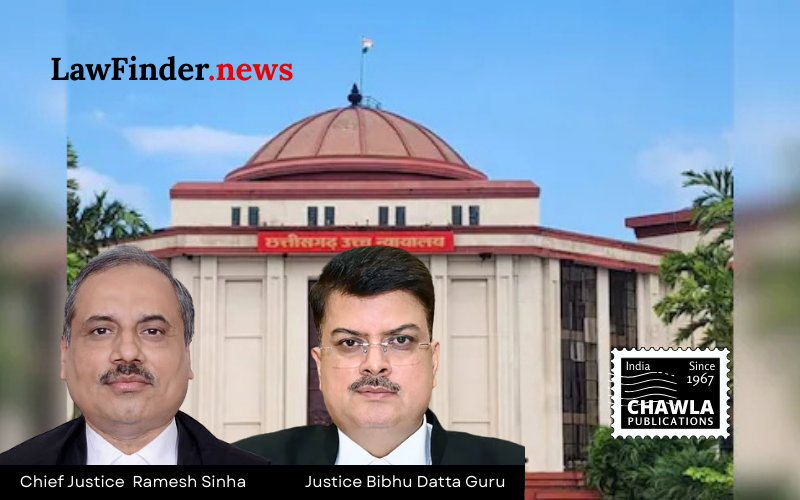Chhattisgarh High Court overturns murder conviction due to lack of medical certification of mental fitness in dying declaration.
In a significant judgment, the Chhattisgarh High Court has acquitted Bhemeshvar @ Ravi, who was previously convicted of murdering his wife by setting her on fire, due to critical procedural lapses surrounding the dying declaration. The Division Bench comprising Chief Justice Ramesh Sinha and Justice Bibhu Datta Guru delivered the judgment on October 7, 2025, overturning the life sentence handed by the trial court to the appellant under Section 302 of the Indian Penal Code (IPC).
The case dates back to April 24, 2019, when Laxmibai, the appellant's wife, sustained severe burn injuries after allegedly being set ablaze by her husband. She succumbed to her injuries on May 5, 2019. The prosecution's case relied heavily on a dying declaration made by the deceased, in which she accused her husband of the act. However, the High Court found that the conviction based solely on this dying declaration was unsustainable due to the absence of a contemporaneous certificate from the treating doctor attesting to the mental fitness of the declarant.
During the appeal proceedings, the High Court scrutinized the procedural integrity of the dying declaration. It noted that while the declaration was recorded by Naib Tehsildar Rakesh Kumar Dewangan, there was no formal certificate from the attending doctor verifying the deceased's mental state. This omission, the court held, was a serious lacuna that rendered the dying declaration unreliable for conviction purposes.
The High Court further observed that the investigation lacked corroborative evidence to support the dying declaration. Witnesses, including the deceased's father and cousin, testified to her statements about the incident, but these were deemed insufficient without the medical certification of her mental fitness at the time of declaration.
The judgment highlighted the necessity of procedural safeguards in recording dying declarations, emphasizing the need for a clear, written certificate from a medical officer certifying the declarant's mental fitness. The court directed the Chief Secretary and the Director General of Police, Chhattisgarh, to ensure strict adherence to these procedural requirements to prevent future miscarriages of justice.
With this verdict, Bhemeshvar @ Ravi, who has been in custody since May 2019, is set to be released. The court's decision underscores the importance of rigorous adherence to procedural norms in criminal justice processes, particularly in cases involving dying declarations.
Bottom Line:
Conviction based solely on a dying declaration requires strict adherence to procedural safeguards, including a mandatory certificate from the treating doctor attesting to the mental fitness of the declarant.
Statutory provision(s): Indian Evidence Act, 1872 Section 32, Criminal Procedure Code, 1973 Section 313, Section 302 of the Indian Penal Code, Section 437-A of the Cr.P.C. (now Section 481 of the Bhartiya Nagarik Suraksha Sanhita, 2023)
Bhemeshvar @ Ravi v. State of Chhattisgarh, (Chhattisgarh)(DB) : Law Finder Doc Id # 2792915




